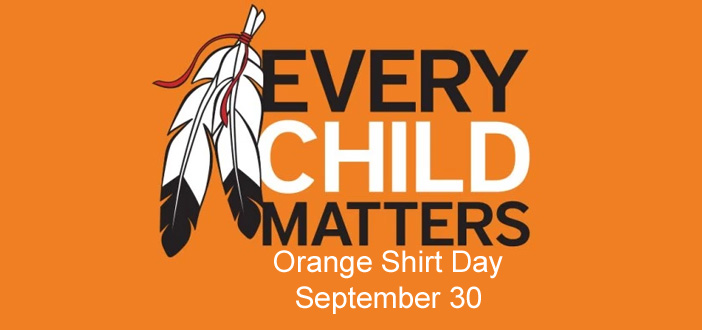By Maud Weaver
On Wednesday, September 30, the Indigenous Education and Services team at George Brown College hosted an online event for Orange Shirt Day which honours the survivors, victims, and families of those impacted by residential schools.
Orange Shirt Day is named after Phyllis Webstad’s story. Webstad is a residential school survivor who wore an orange shirt her grandmother bought her on her first day, and upon arriving was stripped by the school’s workers. Her clothes were taken away and she was never given her shirt back.
In her written story on the organization’s website, she relays the importance of an orange shirt.
“The colour orange has always reminded me of that and how my feelings didn’t matter, how no one cared and how I felt like I was worth nothing. All of us little children were crying and no one cared.”
Bob Crawford, an Indigenous counsellor with George Brown’s Indigenous Education and Services (IES) department, said the opening prayer at the Orange Shirt Day event.
“Wearing an orange shirt on that day makes my heart heavy, but it also makes me proud as an Indigenous person,” said Crawford.
Crawford says it’s important to remember not only residential schools, but the colonial history behind them. He connects this history to generational trauma that is affecting Indigenous communities today.
“We’re still going through that intergenerational trauma from the kids attending residential school, and really stripping their identity away from them,” said Crawford. “The idea of residential schools in themselves was to kill the Indian in the child which basically means to make them forget that they were First Nations, Metis, or Inuit, and that’s why they were separated into these schools.”
Lori Budge, another Indigenous counsellor with IES, also speaks to the generational trauma with her own story.
“Our story’s different when I think of not being personally affected by residential schools, but of course I was because it wasn’t just the people who went there that were shamed, that lost their culture, that lost their language. The legacy of it was devastating to entire communities.”
“I really like Orange Shirt Day as a vehicle for teaching, and that’s what it is,” says Budge. “It’s about educating people about what happened, and they use it in grade schools and I think that was a topic that a lot of people talked about, but it was difficult to tackle, and I just feel like this opens that conversation in a really positive way.”
Orange Shirt Day takes place each year on September 30 because that was often when children were taken away from their families to be sent to residential schools.
“We feel it’s an important day, and one that connects us to school, that connects us to each other, and that relationship with education, and we didn’t just want the opportunity to go by,” says Budge.
To participate in this year’s events, everyone is encouraged to wear an orange shirt.
Budge tearfully ends by saying, “I just hope people take a moment to think of all those little ones, and the things they went through, and the little ones that didn’t make it.”


